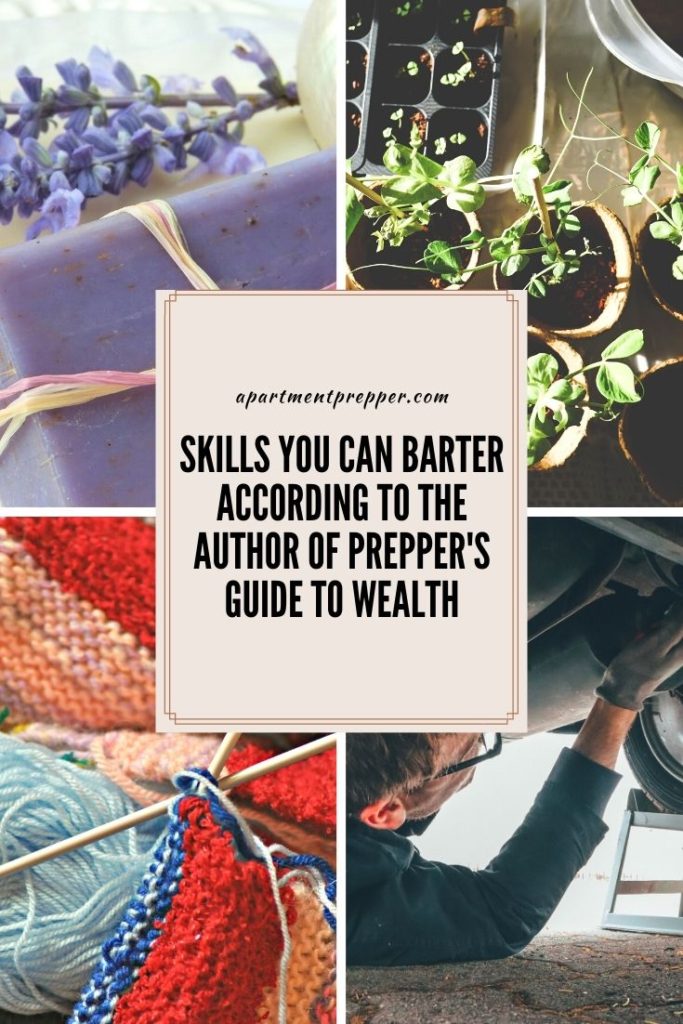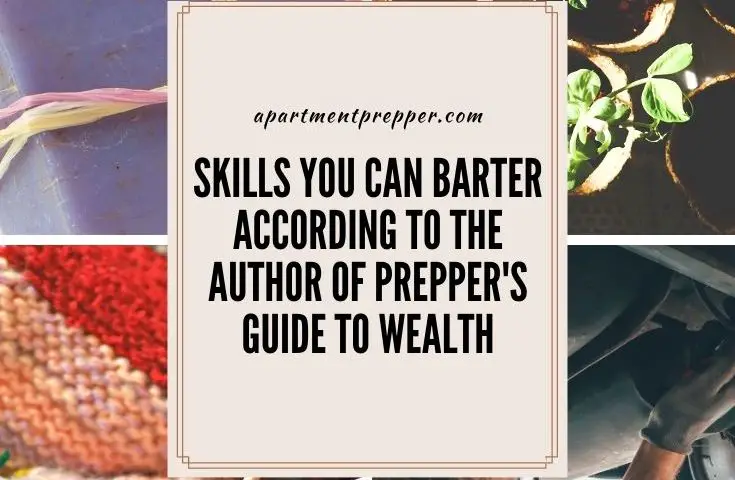Written by Bernie Carr
During difficult economic times, it becomes harder to decide where one should invest to avoid losses, as the stock market and other investments such as cryptocurrency are very volatile.
Today, I am posting (with permission) an excerpt from Prepper’s Guide to Wealth written by Ron Brown in regards to investing in our own skills.
Learning barterable skills
Instead of investing all our money in trade goods, perhaps we should invest some of our time (the most precious commodity of all) in learning barterable skills – midwifery, repairing musical instruments, making wine. In hard times, skills will serve us better than a stash of cash or a box of candles. Knowing how to make candles will put us further ahead than having a horde of candles.
The guy with two kids and a house mortgage doesn’t have much spare money to save or invest anyway. But he can pay his house mortgage while studying algebra… or learning to repair zippers. He can pay his house mortgage and acquire skills at the same time.
So here’s a list of barterable skills (some from before the days of electricity and internal combustion engines)
- making soap
- home canning of vegetables and meat
- gardening (knowing how to grow vegetables), growing onion sets or seed potatoes
- auto & tractor repair
- knowing how to file income tax returns
- house painting
- carpentry
- dog training
- hatching chicks
- milking cows by hand
- sheep shearing
- cutting hay with a grass scythe
- saving open-pollinated vegetable seeds
- grinding flour (by hand or powered with a treadmill)
- sewing (by hand or with an electric machine or with a treadle machine)
- darning socks
- knitting (by hand or with a machine)
- cutting firewood
- making barrel stoves
- making Russian fireplaces
- capturing energy (generators, windmills, solar panels, treadmills)
- eyeglass repair
- building a privy
- ammo reloading
- riding shotgun or being a bodyguard
- preparing houses to withstand attack
- providing taxi service or trucking service
- piloting (flying)
- driving (a car, tractor or horse)
- bike repair (pedal bikes, electric bikes, motor bikes, motorcycles, scooters)
- sending messages via shortwave radio
- tutoring “new math”
- teaching 3Rs to children
- teaching music
- teaching dance
- teaching drawing
- advising on statistics
- saw sharpening
- setting up and administering a barter club,
- barbering
- baby-sitting
- welding
- locksmithing
- small engine repair
- building root cellars, barns, chicken coops
- repairing electronics
- shoe repair etc..
The point is, barterable skills will keep you going a lot longer than barter goods.
The IRS can’t tax your skills (your ability to speak Spanish or use Morse code or grade rare coins). And, unlike gold, you can cross international borders without fear of your skills/assets being confiscated. Plus, on either side of the border, skills have earning potential. Say again: Skills have earning potential.
The final word
Whether you live in an urban or rural environment, there are several skills in the above list that you can learn, and be able to either barter or earn extra money.
If you’ve ever wondered about various investment vehicles such as gold, land, stocks, or cryptocurrency, Prepper’s Guide to Wealth by Ron Brown provides a lot of good insights, a bit of history and personal experience. It is written in a conversational tone and easy to follow. It is a quick read – and once you finish reading, you’ll know a lot more about how currency works.
We are an affiliate of Amazon.com, which means we received a small commission if you click through one of our Amazon links when you shop, at totally no cost to you. This helps keep the lights on at the blog. Thanks!




Wouldn’t it be fun to have a contest and see how many barterable skills readers could come up with? (Although I don’t know who would be qualified to judge such a contest or what the criteria for “best idea” would be.) For sure city dwellers and country folk would have different thoughts on the topic. As would persons brought up during World War II (remember Victory Gardens?) compared to youngins born in the age of cell phones.
Hi Ron, I do hope readers find some new skills to take up-they can really help as things get tougher. Thanks for the comment 🙂
I do blacksmithing as a hobby. Over the past 7 years, I’ve learned how to make my own coal, and have a non-electric forge set up. Making hinges, scythes, and various tools (or repairing them) has been a rewarding experience. I believe older forms of labor will become very useful in the event of hard times.
Want to blacksmith? Look for your local blacksmithing association and sign up! I’m in the Houston area, and on the board of HABA – the Houston Area Blacksmithing Association. Learn more at HABAiron.club
Hi Joseph, Blacksmithing is a great hobby! Good to know there are blacksmithing associations that people who are interested can join. Thanks for the comment.